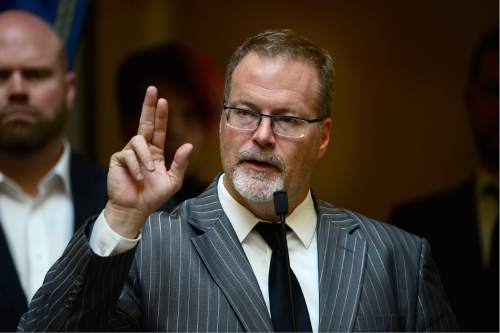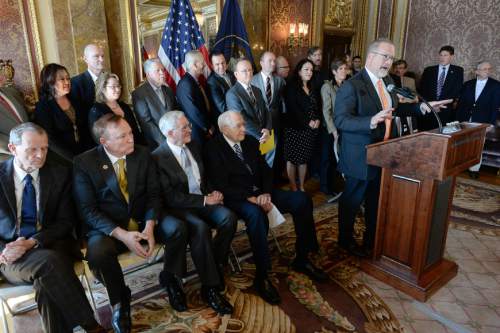This is an archived article that was published on sltrib.com in 2016, and information in the article may be outdated. It is provided only for personal research purposes and may not be reprinted.
State Sen. Steve Urquhart, R-St. George, resigned Wednesday because he is moving out of his district to live in Salt Lake City for a new job as a global ambassador for the University of Utah.
He was not seeking election, and had planned to retire at the end of the year.
"But things are moving faster than I had anticipated with my post-legislative life," Urquhart, a lawyer, wrote in his resignation letter.
He said he accepted a new job with the university "looking to make the U's international efforts bigger and better by bringing on corporate, government and others to partner with the U and its students."
He said he has been splitting time between St. George and Salt Lake City, but will now move full-time outside his district — so he must resign.
"I will miss working daily for my constituents," he wrote.
Urquhart served eight years in the Senate and eight in the House of Representatives.
He shepherded some difficult issues that took years to become law, including a compromise anti-discrimination law hailed by both gay rights groups and The Church of Jesus Christ of Latter-day Saints.
He also recently pushed, unsuccessfully, to abolish the death penalty and to toughen the state hate-crimes law, which prosecutors say is now all but unenforceable. He has also pushed higher education reform.
Senate President Wayne Niederhauser said Urquhart "exhibited exceptional talent and courage in his legislative career. I have admired his character and ability. His capacity as a legislator will be greatly missed, along with his distinct wit and candor."
Competing to fill his District 29 Senate seat in the Nov. 8 election are Republican Don Ipson, who currently is a House member, and Democrat Dorothy A. Engleman.
The early resignation means Republican delegates likely will nominate his temporary replacement — who will serve until the end of the year —well before the election, with the governor making the final appointment.





